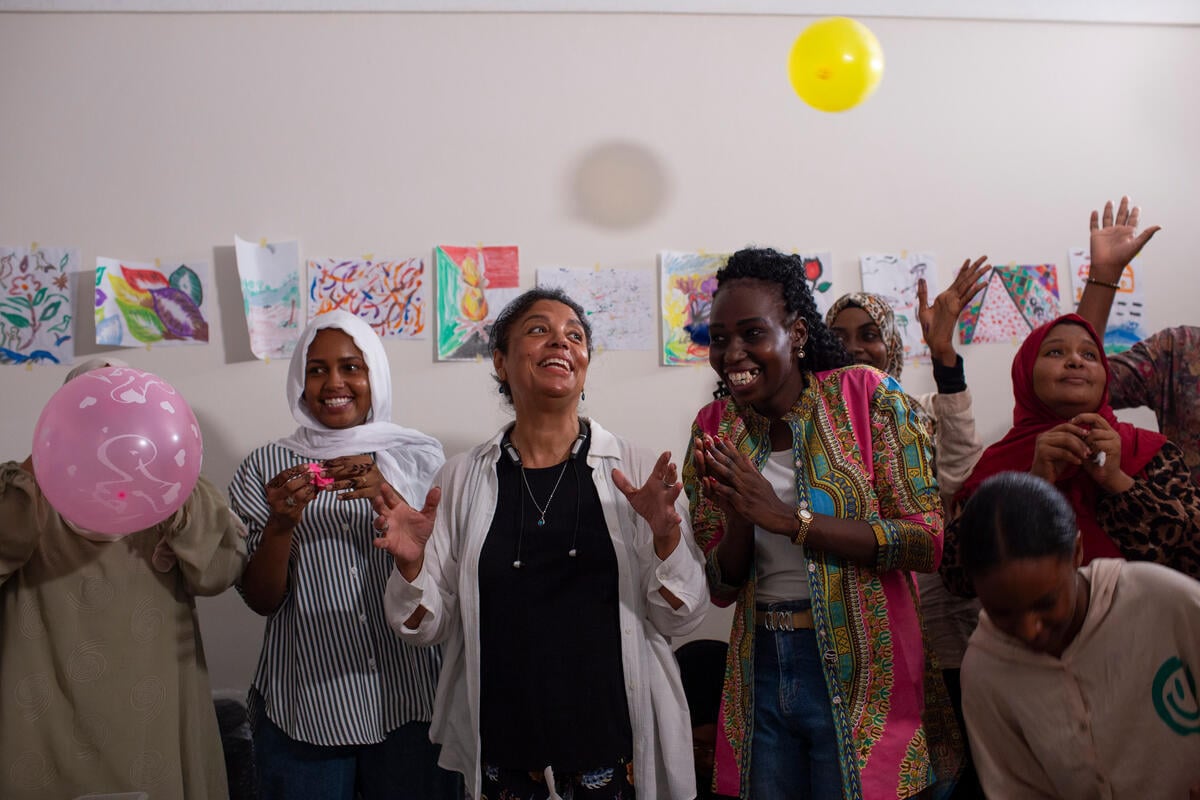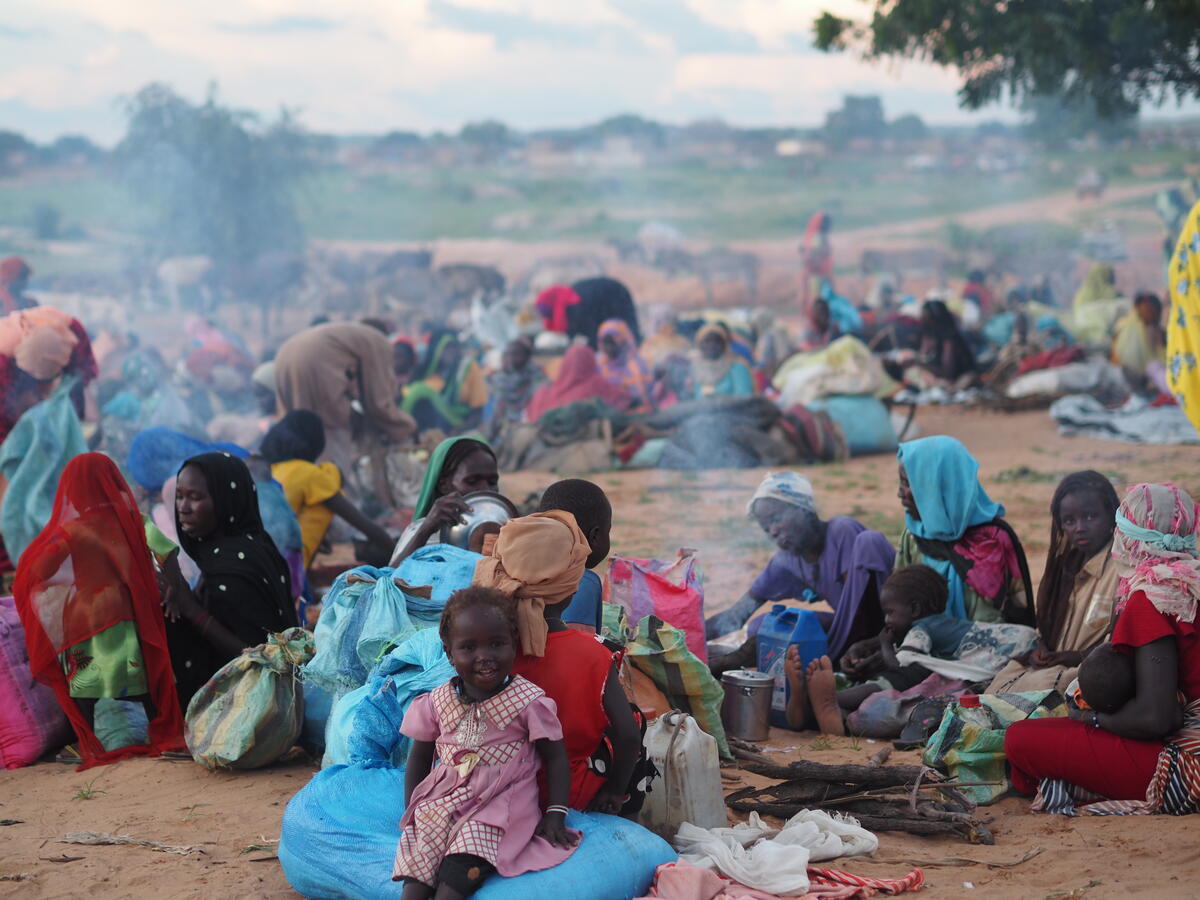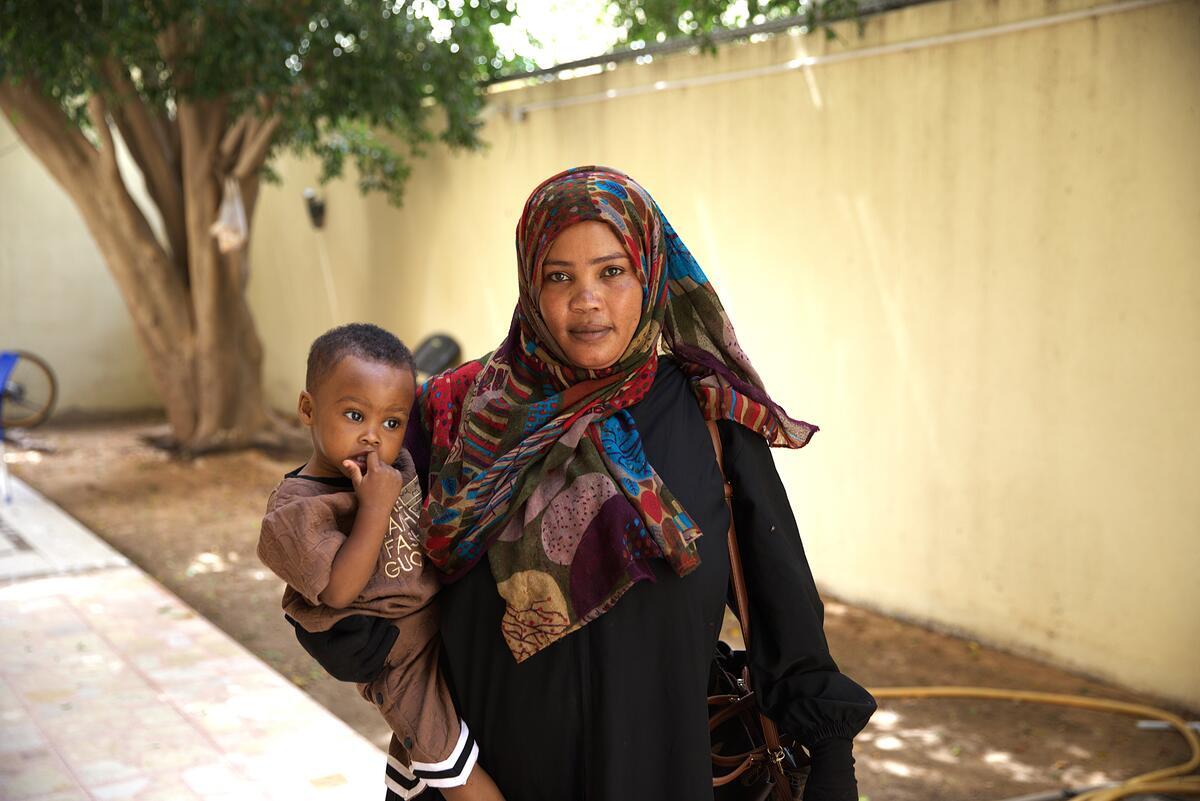Chad: funds urgently needed
Chad: funds urgently needed
UNHCR urgently needs funds for its emergency operation for up to 135,000 Sudanese refugees in the border region of Chad. So far, we have not received any contributions for the Chad emergency for 2004. Funds are urgently needed because we are in a race against time to relocate refugees from the volatile border area to safer sites further inside Chad. This urgency was underscored yesterday when the border town of Tine was bombed. In addition, we need to move up to 110,000 people before the start of the rainy season in May, when the sandy roads will become impassable. In September, 2003, we had appealed for $10.3 million for 2004 to protect and provide assistance to some 65,000 refugees. This figure is currently being revised upwards in light of ongoing new arrivals of refugees, including some 30,000 in December and another 18,000 estimated in January.
Meanwhile, we are extremely concerned about the deteriorating situation for Sudanese refugees in Tine, a town that straddles the border. A UNHCR team confirmed that Tine-Sudan was bombed several times on Thursday morning. The team was registering recently arrived refugees on sites on the Chadian side and had to withdraw quickly after being informed by the local population of increased tensions at the border. As they were driving away from the border, they witnessed explosions on the Sudanese side.
Chadian local authorities reported to UNHCR that seven explosions also occurred on the Chadian side. A 28-year-old man and his 2-year-old child, both Chadians, were killed in the explosions, authorities said. Fifteen other people, all Chadians, were wounded, two of them seriously. They were operated on at the MSF-Belgium hospital in Tine-Chad.
A UNHCR protection officer and field security assistant remained in Tine-Chad until the end of the day to monitor the situation together with the local authorities, while the rest of the team was being temporarily relocated to Iriba. The team had already registered 1,045 refugees on Wednesday in Red Hill, a refugee site 3 km from the centre of Tine. Sudanese refugees have been gathering in the past weeks in this area, after fleeing bombing in Tine-Sudan and surrounding villages and attacks by militia. The UNHCR team was hoping to complete registration in other refugee sites in Tine when the explosions occurred.
More than 5,000 newly arrived refugees have been registered so far in four other sites between Birak and Tine. UNHCR and CNAR (Comité d'Accueil pour l'Accueil et la Réinsertion des Réfugiés) have registered 1,759 refugees in Andour, 1,350 refugees in Ouaddi Ogona, 1,217 in Kabraba and 762 refugees in Kourikele. The four sites are all between 7 and 23 km from the border with Sudan.
The next step is now to transport the refugees to a safer site further inside Chad. Refugees will first be transported to a transit centre at Kounoungo, 18 km from Guéréda, before moving to the camp itself at Kounoungo which is currently being readied to receive the refugees. The new arrivals fled intense fighting in Sudan on January 16. They said their villages were bombed by aircraft and attacked by armed militia who looted and burned their houses and stole their cattle.
Meanwhile, more than 1,000 refugees have been relocated from border sites south of Adré to the first established camp at Farchana. Wednesday's convoy moved 201 people from Wandalou and Absogo on the border, and another convoy, the sixth so far, is scheduled for today. Farchana camp will be able to host up to 12,000 people. Twenty trucks should arrive next week to help us speed up the relocation.
A site near the village of Mile, 25 km north-west of Guéréda, has been selected as the third camp for relocating refugees. Hydrologists from NCA (Norwegian Church Aid) will arrive this weekend to begin working with UNHCR to set up the camp. More water experts from the German agency THW are also arriving in coming days to help identify additional sites.
A UNHCR team leaves today for Goz-Beida, in the south, to talk to local authorities about identifying a camp site in that region.
An estimated 100,000 Sudanese refugees are scattered along a 600 km stretch on the border between Chad and Sudan.









